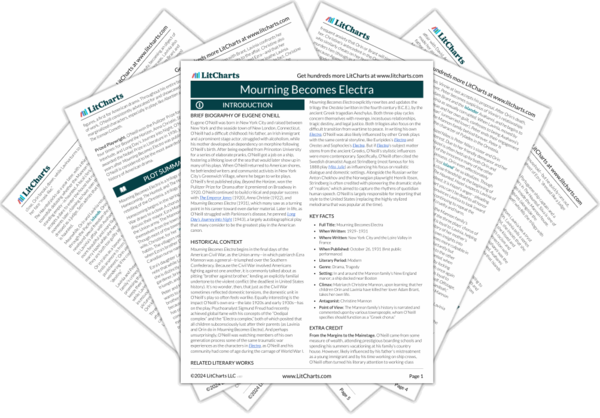Though the characters have often acknowledged their proto-incestuous impulses, nowhere in the trilogy does anyone state these longings as explicitly as Orin does here. This essential exchange contains two vital pieces of information. First, Orin now identifies the root of his own incestuous desires in his father’s (and grandfather’s) longing for Marie Brantôme, suggesting an even more cyclical, inescapable view of history and biology. And second, in articulating the scope of his incestuous desire for Lavinia, Orin also becomes unable to bear his own life—and so decides to take it.
